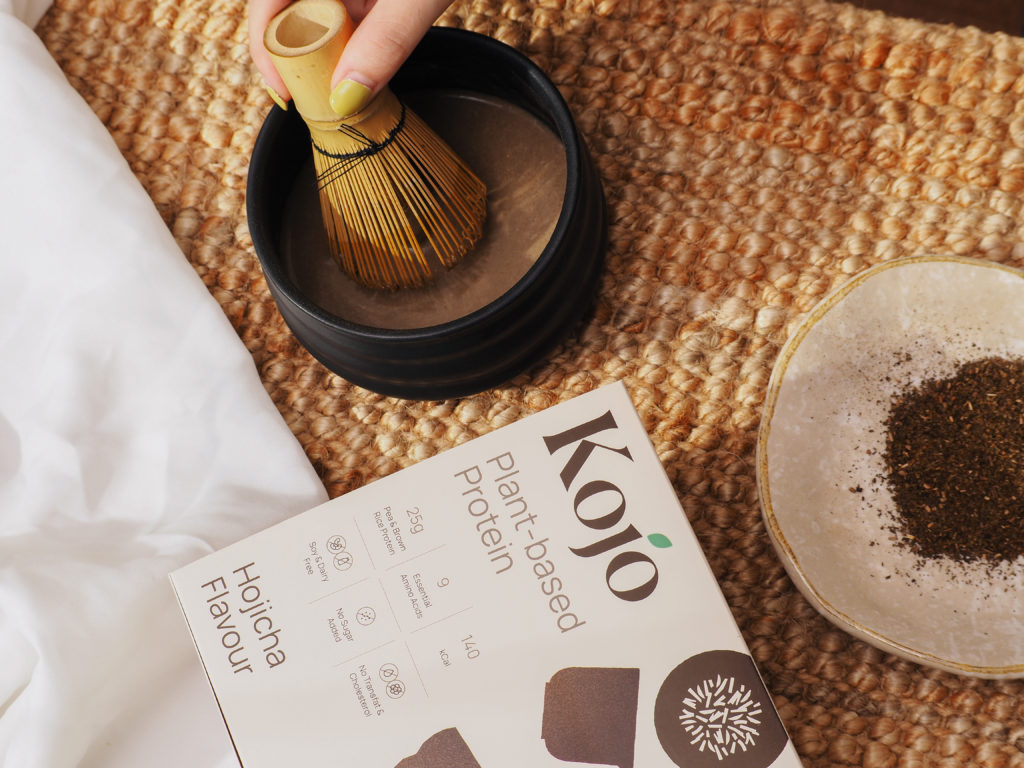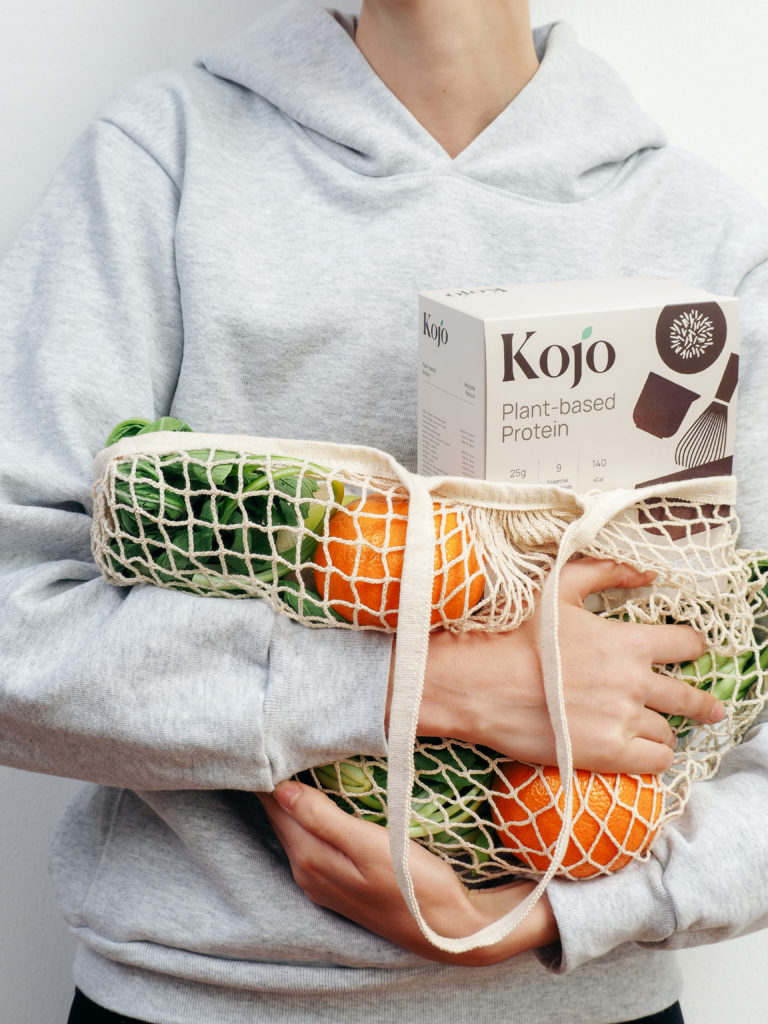The rise of alternative food supplements is growing across the globe, with consumers either seeking out healthier alternatives to their daily diet or looking for alternative protein options that suit their dietary requirements. Research firm Nielsen estimates that meat alternatives, in particular, have jumped 60% due to more widely available products.
Trends in plant-based food in Asia have also grown. Southeast Asia’s plant-based meat market size is poised to increase by 25% to 1.7 billion USD by 2025, driven by increased awareness in healthier options and sustainability.
We’re already seeing some movements of this trend in Thailand, with many people seeing the potential for plant-based products, but not having the right option for themselves yet.
Protein is beneficial to essentially every part of your body, from muscle to bones and even your hair and nails. It also helps to supply and store nutrients within your body, not to mention, helps regulate hormones and food digestion.
Come to think of it, we could all benefit from more daily protein intake, but adding protein to your daily diet can be difficult.
This is where Kojo comes in. The one sachet fits all solution that you can quickly prepare with added water or your plant-based milk of choice. Just one drink and you’re set to go.

“We personally saw a lack of options and variety in the plant-based market, and found that taste and price were key pain points,” said Paphawadee ‘Gam’ Prawatyotin and Thanaporn ‘Peach’ Chimtawan, co-founders of plant-based protein brand Kojo, a new entry into the plant-based market.
“Kojo is made of pea protein, which is actually one of the highest quality proteins and still quite uncommon in the Thai market,” says the co-founders. “We saw the opportunity gap and decided to launch the brand together.”
Months of R&D later, the brand was born.
The Kojo Story
The idea behind Kojo began when both Gam and Peach noticed a lack of plant-based options in the market, and also due to Gam’s own experience of being lactose intolerant. “I wasn’t getting enough protein in my daily diet, and I started to explore options to make my body healthier,” she says.
A few brainstorming sessions later, Kojo was born in December 2021. The refreshing and accessible branding is a testament to how Kojo positions itself in the market.
“Kojo is essentially a pea-based protein powder that is accessible for everyone, regardless of their age, gender and lifestyle,” says Gam and Peach.
That picture in your head of a buff gym fanatic pumping iron and gulping down whey protein doesn’t apply here. Kojo’s mission is to be that extra food supplement for your everyday routine, whether you need a midday snack or a power fuel in the morning before a full day of meetings, or even to sip between the day.

“Our vision for Kojo is to be that added superfood, literally anyone is suited to drink Kojo,” says Gam. “Since we started selling, we see all types of consumers across all age groups and lifestyles.”
Kojo’s core product is its hojicha flavored plant-based protein powder, sold in a box of 10 sachets and most recently, now in a larger 910 grams bag for those who need their daily scoops of protein.
The brand’s co-founders are not stopping here. They have plans to build out a wellness ecosystem for plant-based products in the future, with an aim to support an eco-conscious approach to everyday life. In the future, there will also be other flavours of the pea protein supplement.
“Kojo is a stepping stone to achieving health and wellness in everyday life,” says Peach. “We want the product to represent a certain lifestyle that promotes happiness, health, and holistic well-being. It’s not just about building muscle, although that’s also an added benefit!”
Unboxing The Product
Let’s get to know the product a bit better. One serving of Kojo is all you need to kickstart your way to improved overall health. One serving has 25 grams of protein, from both pea and brown rice. The product does not include any soybeans, dairy, or gluten.

The product is FDA approved, with R&D taking over a year as both worked closely with nutritionists to come up with the best tasting formula, as well as sourcing the most high-quality pea protein from the United States.
“Kojo doesn’t have any trans fat, sugar, or cholesterol,” says Gam, “making it the perfect supplement to add to your daily diet.”
Each serving is 140 calories, easily enough to keep you full and nourished between main meals without having the urge to snack.
Pea protein is not often found in plant-based products sold in Thailand. So, why did the co-founders of Kojo decide to use pea protein in their product?
“Pea protein contains high levels of BCAAs amino acids, and essential nutrients including leucine, isoleucine, and valine. BCAAs are known for stimulating the building of protein in muscle, as well as helping prevent muscle breakdown,” explained both co-founders.
For both Gam and Peach, pea protein has added benefits that make it a superior ingredient to say, soy protein.
“Soy protein contains the anti-nutrient phytic acid, which means you may be absorbing less protein than you realise,” says Gam. “Although soy also contains high levels of amino acids, the kind you have in pea is more concentrated, as pea has the highest level of leucine and arginine.”
Another key benefit is that Pea protein poses no known health risk and is hypoallergenic, whilst many can be allergic to soy.
Plant-based proteins are easier to digest and kinder on your digestive system. Whilst whey protein can be known to cause stomach distress in some people. There are multiple benefits and contain a high level of iron, which can help build muscle, and aid weight loss, and heart health.
“As pea protein powder is naturally vegan and gluten-free, it’s perfect for those who are allergic to various things such as eggs, cow’s milk, and soy,” says Peach. “It’s also very effective in keeping you full throughout the day.”
Plant-based products not only help your overall health, hormones, and digestive system but can make your skin clearer, as lactose intolerance often shows up in the form of facial acne.
Building the Brand
Initially, the co-founders thought it would be challenging to educate the market and consumers about the benefits of pea protein and to convince some people to make the switch to a plant-based diet.

“Once we launched our Instagram page, people started to message and ask very thoughtful detailed questions,” said Gam. “Consumers want to really understand our product and ingredients because plant-based food can cater to those with allergies, it’s important to know all the facts.”
When selling something such as plant-based protein products, it’s important to understand the benefits of all ingredients.
“Potential clients can ask very detailed questions, and we need to be prepared. This is why we also focus on creating educational content on Kojo’s Instagram page, not just sell the protein,” says Gam.
Kojo’s Instagram page also serves as a knowledge hub for curious consumers, from detailing the benefits of pea protein to amino acids. Customers want to know if there’s enough amino acid in each serving, and whether it’s easy to incorporate into your daily life.
When it comes to health and wellness, it can be a delicate industry and people often take time to go through all the ingredients included, particularly for a new brand.
“Kojo is really something you can drink every day, it can become an integral part of your diet and routine,” says Peach. “it has the versatility for overall health and wellness over traditional whey protein.”
How is Plant-Based Protein Creating Value in Your Daily Life?
Kojo’s mission is to be the additional value-added to its customers’ daily lives and another healthy yet delicious alternative to your everyday diet.
“For customers who wish to try a plant-based product like ours, we wouldn’t want to encourage them to make the complete switch to a full-time plant-based diet. Think of Kojo as another option or a helping hand for health,” says Gam.
“There are still some misconceptions about plant-based protein products, some people assume that the more plant protein you put in, the more benefits you get.”
The reality is that the general person may not need many protein variations in their system, but would benefit most from the premium grade, high-quality proteins that have been carefully selected.
The future for Kojo
Kojo is chipping away at the misconception that protein drinks are suited to gym buffs who want to bulk up. The brand is breaking stereotypes and making customers realize that essentially anyone can benefit from drinking protein, incorporating it easily into their daily routines, whether at work or even on holiday.
“We’re committed to building the ecosystem, and changing people’s misconceptions about protein powder,” says Gam and Peach. “Our goal is to deliver better health and wellness solutions to existing customers and beyond.”
Keep an eye out for new flavors, and pick up a box or a larger bag of Kojo’s hojicha flavored protein powder on your main online platforms; Lazada, Shopee, Line Shop, or directly via Instagram!




